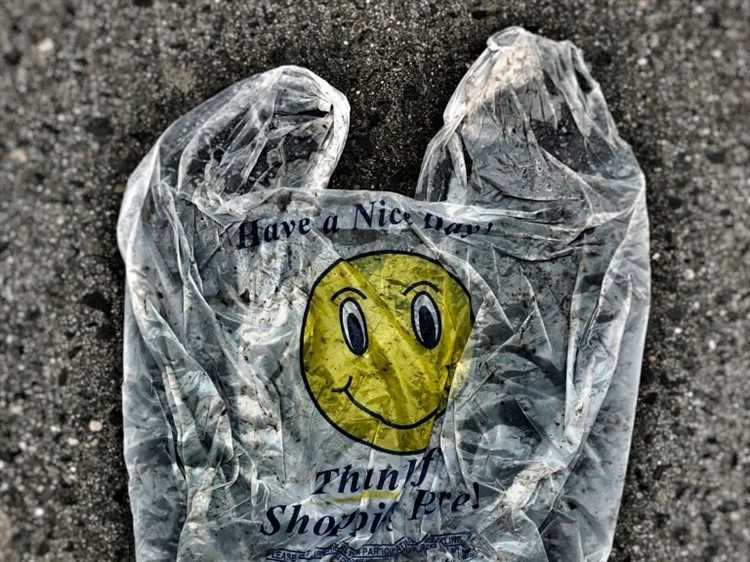
Maryland is known for its commitment to environmental sustainability and reducing single-use plastic waste. In an effort to encourage residents and businesses to reduce their consumption of disposable bags, several counties in Maryland have implemented a bag tax. This tax is aimed at promoting the use of reusable bags and reducing the negative impact of plastic bags on the environment.
Counties such as Montgomery, Prince George’s, and Baltimore have all implemented bag taxes as a means of reducing plastic waste. The bag tax typically requires businesses to charge customers a small fee for each disposable bag they use. This fee acts as an incentive for individuals to bring their own reusable bags when shopping.
By implementing a bag tax, these counties hope to reduce the number of plastic bags that end up in landfills and polluting waterways. Plastic bags can take hundreds of years to decompose and can cause significant harm to wildlife and ecosystems. The bag tax is a step towards promoting more sustainable practices and encouraging individuals to make environmentally conscious choices.
It is important for residents and visitors to be aware of the bag tax in these Maryland counties in order to plan their shopping trips accordingly. By bringing their own reusable bags, individuals can not only avoid the bag tax but also contribute to the conservation of the environment and the reduction of plastic waste. Together, we can make a difference in creating a cleaner and more sustainable future for Maryland.
- Counties in Maryland with a Bag Tax
- What is a Bag Tax?
- How Does a Bag Tax Work?
- Benefits of a Bag Tax
- Conclusion
- Benefits of a Bag Tax
- 1. Reduces litter
- 2. Decreases plastic consumption
- 3. Supports local businesses
- 4. Generates revenue
- Maryland’s Approach to Reducing Plastic Bag Use
- Counties in Maryland with a Bag Tax
- Impacts of a Bag Tax on Businesses
- How to Reduce Your Bag Tax Costs
- 1. Bring Your Own Bags
- 2. Use Durable Bags
- Q&A,
- Which counties in Maryland have a bag tax?
- Why does Montgomery County have a bag tax?
- How does the bag tax work in Montgomery County?
- Are there any exemptions to the bag tax in Montgomery County?
- Has the bag tax been effective in Montgomery County?
Counties in Maryland with a Bag Tax
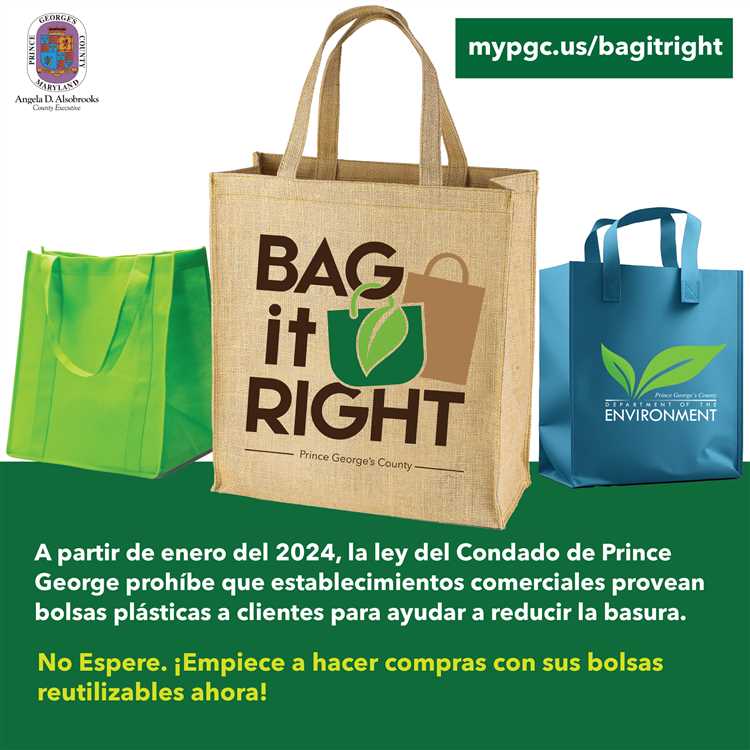
Maryland is one of the states in the United States that has implemented a bag tax in certain counties. A bag tax is a fee imposed on customers who choose to use disposable bags when shopping.
Currently, there are three counties in Maryland that have implemented a bag tax. These counties are:
- Montgomery County
- Prince George’s County
- Talbot County
Montgomery County was the first county in Maryland to implement a bag tax. The tax, which was implemented in 2012, charges customers 5 cents per bag when they choose to use disposable bags.
Prince George’s County followed suit and implemented its bag tax in 2016. The tax in Prince George’s County also charges customers 5 cents per bag, with the goal of encouraging the use of reusable bags and reducing waste.
Talbot County is the most recent county in Maryland to implement a bag tax. The tax was implemented in 2019 and also charges customers 5 cents per bag. The county hopes that the tax will help reduce litter and encourage residents to switch to reusable bags when shopping.
It’s important to note that not all businesses in these counties are subject to the bag tax. Some exemptions apply, such as bags used for certain food items or bags provided by pharmacies for prescription medication.
Overall, the bag tax in these counties is aimed at reducing waste, promoting sustainability, and encouraging residents to make environmentally-friendly choices when it comes to their shopping habits.
Disclaimer: The information in this article is subject to change. Please check with official sources for the most up-to-date information.
What is a Bag Tax?
A bag tax, also known as a disposable bag fee or reusable bag fee, is an environmental policy that charges consumers a small fee for each single-use bag they receive from a store or establishment. The goal of a bag tax is to discourage the use of disposable bags, which contribute to pollution and waste.
How Does a Bag Tax Work?
Typically, a bag tax involves charging a small fee, usually a few cents, for each single-use bag provided at checkout. This fee is added to the total cost of the purchase and is collected by the store or establishment. However, reusable bags, such as cloth or sturdy plastic bags, are often exempt from the bag tax.
The collected fees from the bag tax are usually used by the local government to fund environmental initiatives, such as promoting recycling, reducing litter, or supporting the development of sustainable materials.
Benefits of a Bag Tax
The implementation of a bag tax has several benefits. First and foremost, it helps reduce the consumption of single-use bags, leading to a decrease in plastic waste and pollution. By encouraging the use of reusable bags, a bag tax promotes sustainability and conservation of resources.
Additionally, the revenue generated from the bag tax can be used to support environmental initiatives that benefit the community. This can include funding programs to clean up waterways, reduce plastic waste, or educate the public on the importance of recycling.
Furthermore, a bag tax can encourage consumers to develop eco-friendly habits, such as carrying their own reusable bags when shopping. Over time, this can lead to a cultural shift towards greater environmental consciousness and reduce reliance on disposable bags.
Conclusion
A bag tax is an effective policy tool that aims to reduce plastic waste and encourage sustainability. By charging a small fee for single-use bags, consumers are incentivized to bring their own reusable bags, resulting in a positive environmental impact. Additionally, the revenue from the bag tax can fund initiatives that benefit the community and promote environmental awareness. Overall, implementing a bag tax can contribute to a cleaner and greener future for Maryland and beyond.
Benefits of a Bag Tax
A bag tax, which imposes a fee on single-use plastic and paper bags, has several benefits for communities and the environment. Here are some of the key advantages:
1. Reduces litter
One of the main benefits of a bag tax is its ability to reduce litter. By adding a small fee to every bag, people are incentivized to bring reusable bags when shopping. This helps to decrease the number of plastic and paper bags that end up littering streets, parks, and waterways.
2. Decreases plastic consumption
A bag tax encourages consumers to be more mindful of their plastic consumption. When faced with a fee for each plastic bag, people are more likely to opt for reusable alternatives. This reduces the demand for single-use plastics and helps to combat plastic pollution.
Did you know? The production of plastic bags contributes to greenhouse gas emissions and requires limited resources, such as oil.
3. Supports local businesses
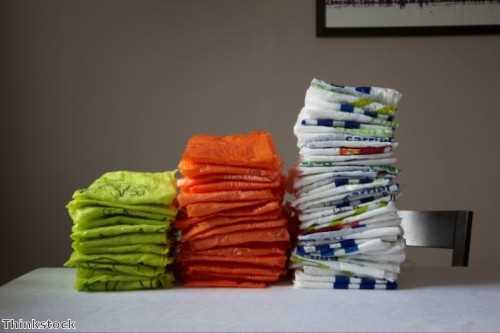
By implementing a bag tax, local businesses can benefit from increased sales of reusable bags. This can help offset any potential decrease in sales of single-use bags. Additionally, it provides an opportunity for businesses to promote themselves as environmentally responsible, attracting environmentally conscious customers.
4. Generates revenue
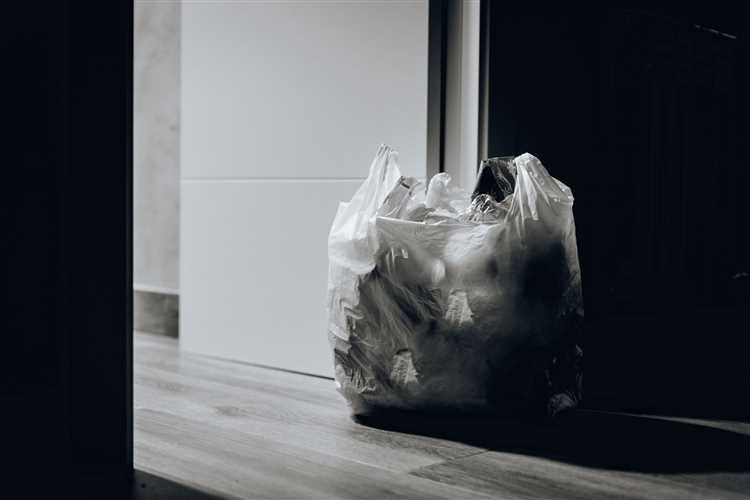
The revenue generated from a bag tax can be used for various community initiatives. For example, it can be allocated towards environmental clean-up efforts, recycling programs, or educational campaigns about the importance of reducing plastic waste. This revenue stream can help fund projects that benefit both the community and the environment.
In conclusion, a bag tax has numerous benefits, including reducing litter, decreasing plastic consumption, supporting local businesses, and generating revenue for community initiatives. By implementing such a tax, communities can take a significant step towards promoting sustainable practices and preserving the environment for future generations.
Maryland’s Approach to Reducing Plastic Bag Use
Maryland is a state on the East Coast of the United States that has taken an active approach to reducing the use of plastic bags. In an effort to reduce litter and protect the environment, Maryland has implemented a bag tax in certain counties. This tax is designed to encourage consumers to use reusable bags and reduce their reliance on single-use plastic bags.
The bag tax in Maryland applies to certain counties, including Montgomery County and Prince George’s County. These counties have implemented a fee for each plastic or paper bag provided at a retail establishment, with some exceptions for certain types of businesses.
The bag tax has had a significant impact on the use of plastic bags in Maryland. Since its implementation, there has been a noticeable decrease in the number of single-use plastic bags being used. This has resulted in less litter in the environment and reduced pollution in local waterways.
In addition to the bag tax, Maryland has also implemented educational campaigns to promote the use of reusable bags. These campaigns provide information on the environmental impact of plastic bags and the benefits of using reusable alternatives. They also provide resources for consumers to find affordable and convenient reusable bag options.
Maryland’s approach to reducing plastic bag use is an example of how government and community efforts can work together to protect the environment. By implementing a bag tax and promoting the use of reusable bags, Maryland is making strides towards a cleaner and more sustainable future.
Counties in Maryland with a Bag Tax
In an effort to reduce waste and promote environmental sustainability, several counties in Maryland have implemented a bag tax. This tax is applied to all disposable bags, such as plastic and paper, that are provided at retail establishments.
Montgomery County was the first county in Maryland to implement a bag tax in 2012. This tax initially required retailers to charge customers 5 cents for each disposable bag used, but it was later increased to 10 cents in 2014. The revenue collected from the bag tax is used to fund various environmental programs and efforts within the county.
Prince George’s County followed suit and implemented a bag tax in 2016. Similar to Montgomery County, retailers in Prince George’s County are required to charge customers 5 cents for each disposable bag used. The revenue generated from this tax is used to support environmental initiatives and programs within the county.
In 2019, Baltimore County joined the list of counties in Maryland with a bag tax. The bag tax in Baltimore County also requires retailers to charge customers 5 cents for each disposable bag used. The funds collected from this tax are utilized for environmental projects and programs focused on reducing pollution and waste within the county.
It is important to note that bag taxes are not implemented statewide in Maryland. Each county has the autonomy to decide whether or not to implement a bag tax based on their individual environmental goals and priorities. Therefore, it is essential to be aware of the bag tax regulations in the specific county you are in when shopping in Maryland.
By implementing bag taxes, these counties in Maryland aim to encourage the use of reusable bags and reduce the consumption of disposable bags. This not only helps in reducing waste generation but also protects the environment by minimizing the use of plastic and paper bags which often end up in landfills or as litter in water bodies.
So, next time you visit Maryland, remember to bring your reusable bags or be prepared to pay the bag tax if you opt for disposable bags!
Impacts of a Bag Tax on Businesses
A bag tax can have significant impacts on businesses, both positive and negative. Here are a few ways that a bag tax can affect businesses:
1. Decreased Costs: By charging customers for bags, businesses can reduce their expenses for purchasing and providing bags. This can result in cost savings for businesses, especially those that provide a large number of bags to customers.
2. Increased Revenue: The revenue generated from the bag tax can be a source of income for businesses, especially if they are able to pass on the cost of the tax to customers. This additional revenue can be reinvested into the business or used to cover other expenses.
3. Customer Satisfaction: While some customers may be initially opposed to paying for bags, a bag tax can encourage the use of reusable bags and promote environmentally friendly practices. This can attract environmentally conscious customers who value businesses that support sustainable initiatives.
4. Operational Changes: Implementing a bag tax may require businesses to make operational changes, such as updating point-of-sale systems to include the bag tax or training staff on how to inform customers about the tax. These changes may require initial investments in equipment or staff training.
5. Consumer Behavior: A bag tax can change consumer behavior by incentivizing the use of reusable bags or reducing the overall consumption of single-use plastic bags. Businesses may need to adapt their marketing strategies to cater to this changing consumer preference for sustainable and eco-friendly options.
6. Competitive Advantage: Businesses that voluntarily implement a bag tax before it becomes mandatory in their area can gain a competitive advantage by positioning themselves as environmentally conscious and demonstrating their commitment to sustainability.
Overall, the impacts of a bag tax on businesses can vary depending on factors such as the size and type of business, local consumer attitudes, and the effectiveness of public education and awareness campaigns related to the bag tax. While there may be initial challenges and costs associated with implementing a bag tax, it can ultimately lead to cost savings, increased revenue, and improved customer loyalty for businesses that embrace the change.
How to Reduce Your Bag Tax Costs
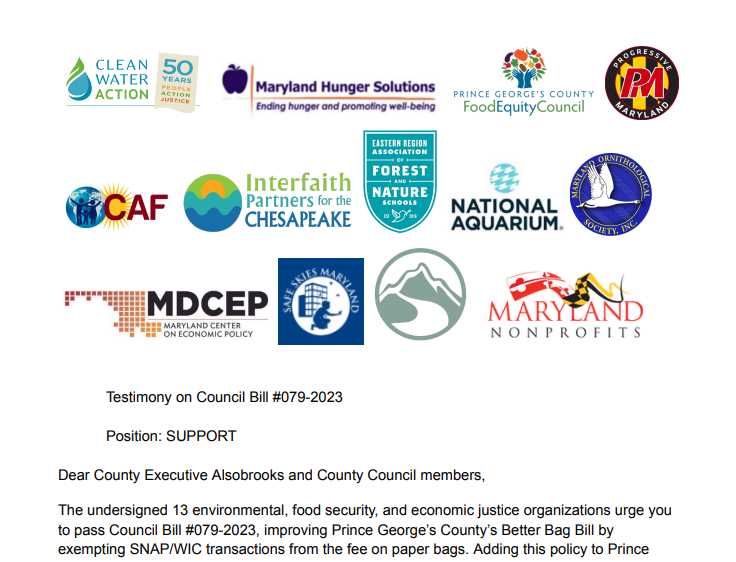
If you live in a county in Maryland that has implemented a bag tax, there are several strategies you can employ to reduce the amount of money you spend on bags. These strategies not only help you save money but also contribute to protecting the environment.
1. Bring Your Own Bags
The simplest and most effective way to reduce your bag tax costs is to bring your own reusable bags whenever you go shopping. By using your own bags, you can avoid paying the bag tax altogether. Remember to keep a few reusable bags in your car or carry them with you, so you are always prepared.
2. Use Durable Bags
If you prefer using plastic bags, opt for more durable options such as thicker reusable plastic bags or bags made from recycled materials. These bags tend to last longer and can be reused multiple times, effectively reducing the number of bags you need to purchase and lowering your bag tax costs.
| Bag Type | Cost | Lifespan | Tax Savings |
|---|---|---|---|
| Single-Use Plastic Bag | $0.05 | 1 use | $0 |
| Reusable Plastic Bag | $1.00 | 30 uses | $1.45 |
| Recycled Material Bag | $2.50 | 100 uses | $3.95 |
As you can see from the table above, investing in a reusable plastic or recycled material bag may initially cost more but can provide significant tax savings over time.
By implementing these strategies, you can reduce your bag tax costs and make a positive impact on the environment. Remember, every small effort counts, and together we can create a cleaner and more sustainable future.
Q&A,
Which counties in Maryland have a bag tax?
As of now, only Montgomery County in Maryland has a bag tax. It imposes a 5-cent fee on each disposable bag that is provided by retail establishments to customers at the point of sale.
Why does Montgomery County have a bag tax?
Montgomery County implemented the bag tax as a way to reduce the use of disposable bags and promote the use of reusable bags. The tax aims to encourage residents to bring their own bags while shopping and reduce the environmental impact of disposable bags.
How does the bag tax work in Montgomery County?
In Montgomery County, customers are required to pay a 5-cent fee for each disposable bag they receive at the point of sale. This fee applies to bags provided by retail establishments, including grocery stores, convenience stores, and other retail shops. The revenue generated from the bag tax is used for environmental initiatives.
Are there any exemptions to the bag tax in Montgomery County?
Yes, there are some exemptions to the bag tax in Montgomery County. Certain types of bags are exempt from the tax, such as bags used for carrying bulk items, bags used for storing food, and bags used for carrying prescription drugs. Additionally, there are exemptions for individuals participating in government assistance programs.
Has the bag tax been effective in Montgomery County?
Yes, the bag tax in Montgomery County has been effective in reducing the use of disposable bags. Since the implementation of the tax, there has been a significant decrease in the distribution of single-use bags, leading to a positive impact on the environment. The tax has also encouraged residents to adopt reusable bags and become more conscious of their plastic consumption.